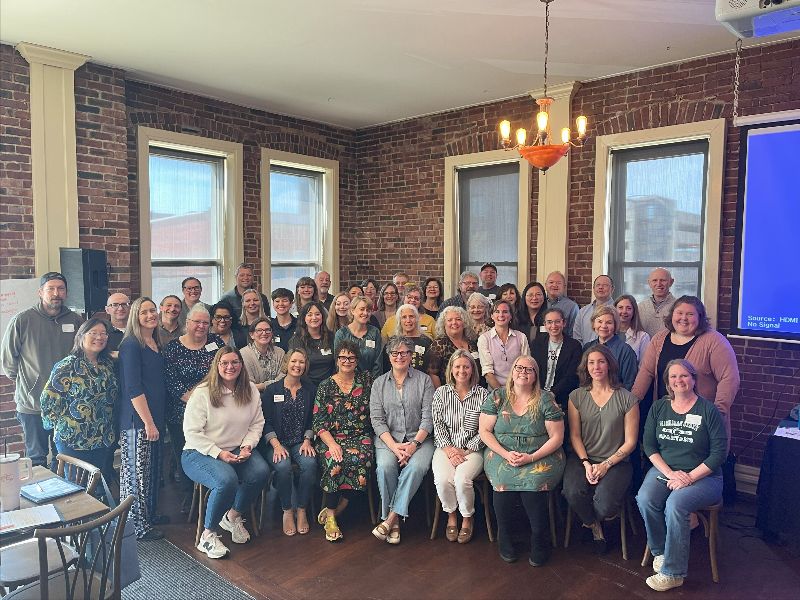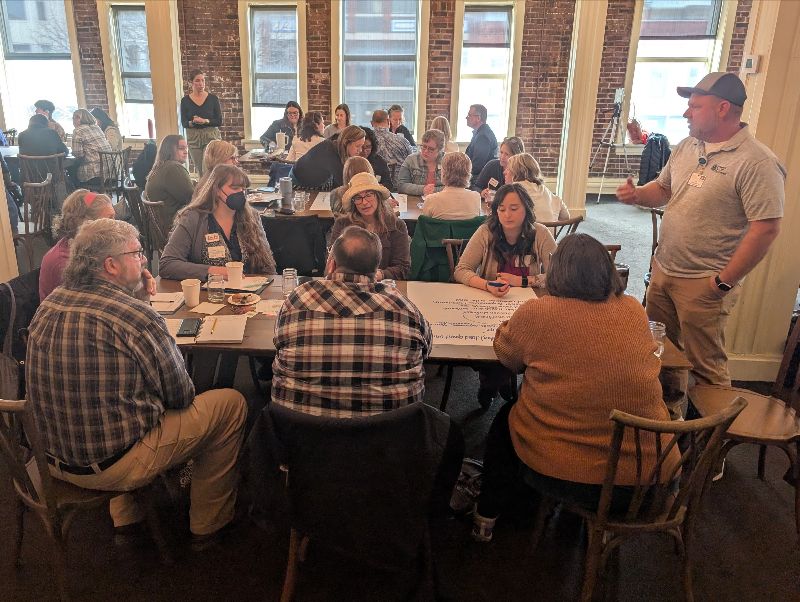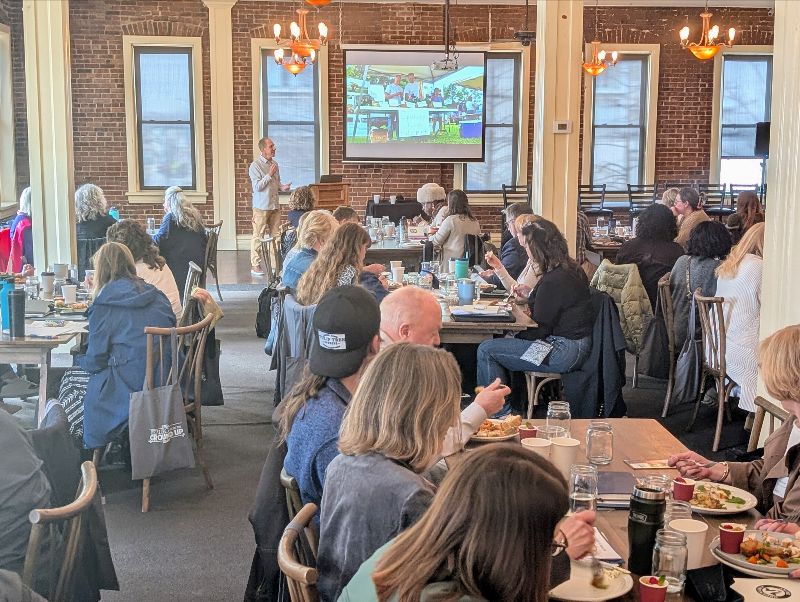Healing from the Ground Up: Forging A Unified Path Between Agriculture, Food Systems, and Healthcare

The current state:
Healthcare delivery, food systems, and agriculture operate largely in isolation today, limiting our ability to address chronic disease and create sustainable food systems. Human health depends directly on food quality, which is determined by agricultural practices and planetary health throughout the food system from production to disposal. Consumers seek comprehensive guidance that goes beyond basic dietary recommendations – they want to understand preventive nutrition while making choices that are economically viable and culturally appropriate.
We envision a future where:
- Consumers have access to foods that support both their health and values
- Our food system supports environmental sustainability while meeting community health needs
- Healthcare systems and their providers are active participants in connecting their communities to health-promoting food systems
- Incorporate food systems and enhanced nutrition education into medicine curricula and residency training
- Farmers are supported in producing nutrient-dense foods through regenerative practices
- Institutions have clear pathways to source and serve health-promoting foods
This summit represents a crucial step toward realizing this vision by bringing together the key stakeholders needed to create systemic change and provides opportunities for engagement, learning, and development and will:
Bridge critical knowledge gaps:
- Enhance healthcare professionals’ knowledge about the food system and agriculture
- Build a shared understanding of how regenerative practices impact soil health and food quality
- Explore connections between soil health, nutrient density, and health outcomes
Drive systems-level change among professional stakeholders:
- Develop collaborative frameworks for agriculture, food systems, and healthcare
- Establish networks for continued learning and implementation
- Develop actionable strategies to implement in individual and collective work within communities
Why it matters
By integrating our approach into agriculture, food systems, and healthcare, we can cultivate more resilient communities, improve public health outcomes, and build a more sustainable future for all.



Key Insights from the 2025 Summit
Healthcare and Public Health
- We explored shifting from disease treatment to prevention through knowledge, education, and behavior change with unified evidence-based approaches
- We discussed building stronger connections between nutrition, food systems, and healthcare with a focus on whole food approaches that benefit both people and the planet
Food Systems
- We envisioned creating robust, stable regional food systems that support growers, buyers, communities, ecosystem health, and resilient economies
- We identified the need for stronger distribution networks and coordination to overcome logistics challenges and ensure market sustainability
Regenerative Agriculture
- We highlighted agricultural practices that heal our planet while feeding communities through policy advocacy, education, and stakeholder coordination
- We recognized the importance of building a shared narrative on regenerative farming based on research that emphasizes soil health and its connections to human health outcomes
Institutional Procurement
-
We explored transforming institutional food purchasing to prioritize locally-sourced produce and create stronger farm-to-institution pathways
-
We discussed developing tools and systems that connect aggregation supply with demand while overcoming barriers like minimum volume requirements
Nutrition Incentive
-
We considered closed-loop systems that make healthy food more accessible through partnerships between healthcare, insurance, and local agriculture
-
We examined expanding economic opportunities through sustainable farms, living wages, and community food solutions that reduce reliance on assistance programs
Nutrition and Food System Education
-
We emphasized delivering consistent, accurate messaging about nutrition that bridges the gap between education and behavior change
-
We discussed strengthening connections between healthcare providers, registered dietitians, and food producers to support prevention and well-being
